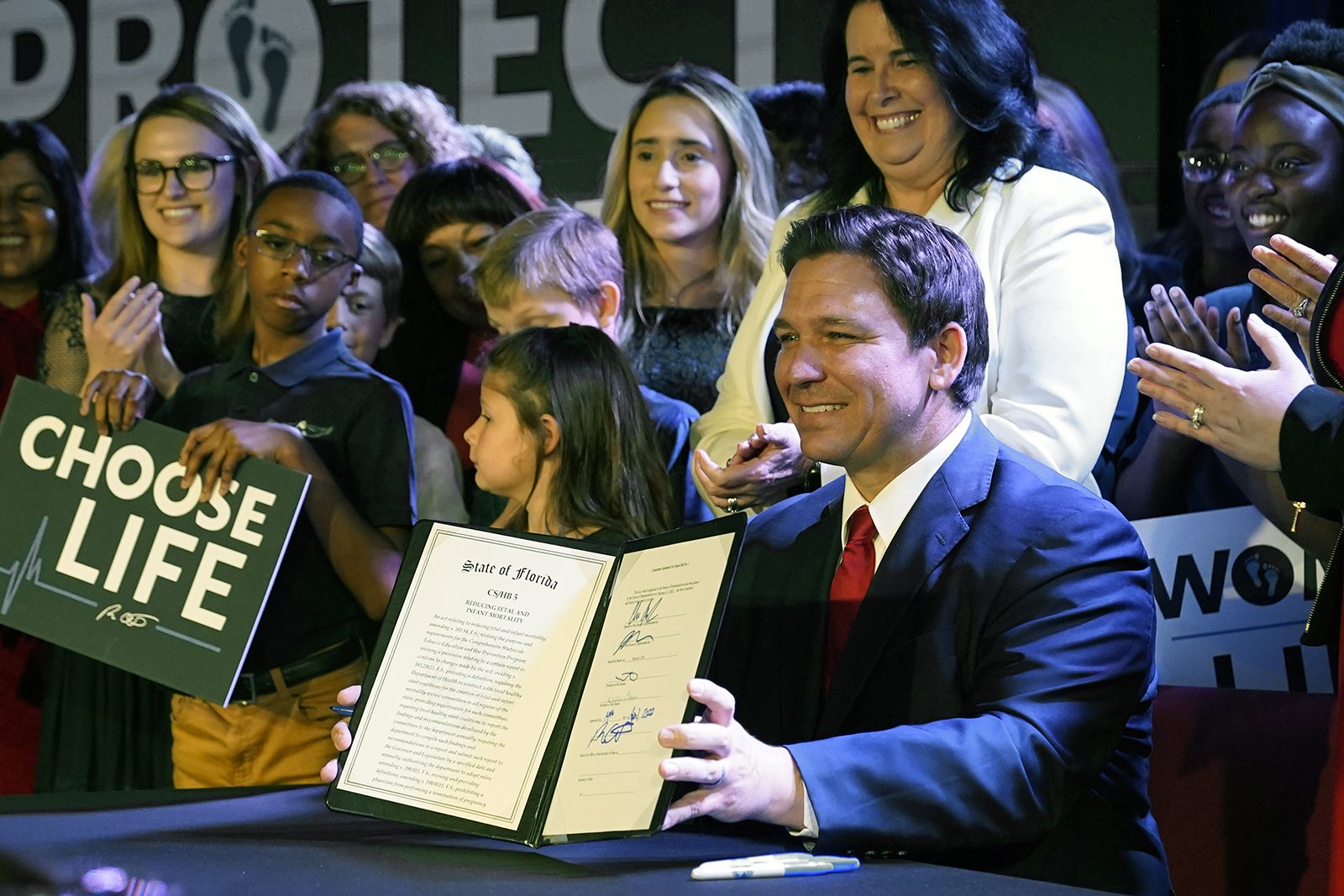(RNS) — As the 2024 Republican presidential nominating contest begins to take shape, conservative Christians may find themselves in an unfamiliar position: left out.
Perhaps as a product of their incredible success at remaking the Republican Party in their own image, the bloc once known as the religious right no longer needs to agitate for its priorities in a party that has internalized them.
The lack of a viable evangelical Christian candidate was obvious at last weekend’s Conservative Political Action Conference gathering. Mike Pence, the closest that conservative Christians have to a standard-bearer, is polling in the mid-single digits and anyway is disqualified because he earned Donald Trump’s enmity for refusing to play his part in the plot to secure Trump a second term. Mike Pompeo and Nikki Haley in a different era may have meaningfully competed for subsets of the white evangelical vote, but neither can promise what evangelicals prize most: the ability to win.
It has been 35 years since evangelicals have had no stalking horse, as they did in Pat Robertson in 1988, Patrick Buchanan in 1996, Mike Huckabee in 2008 and Rick Santorum in 2012. When the nomination went to establishment candidates — Vice President George H.W. Bush, Sen. Bob Dole, Sen. John McCain and former Massachusetts Gov. Mitt Romney — they played kingmaker, extracting policy commitments from the party and its nominees.
In 2000 they succeeded in propelling George W. Bush, the born-again Texas governor, ahead of McCain to secure the nomination.
In 2016, a number of candidates appealed to various segments of the Christian right. Texas Sen. Ted Cruz courted God-and-country conservatives. Former Florida Gov. Jeb Bush appealed to the kinder, gentler conservatism his brother and father championed. Florida Sen. Marco Rubio, somewhat like Santorum, sought to articulate a more communitarian ethos that spoke to workers, not just the GOP’s country-club power centers.
In the end, 2016’s Christian contenders split the non-Trump vote, allowing Trump to vanquish his foes and capture the nomination. A few principled Christians refused to vote for the obnoxious, race-baiting New York multimillionaire whose serial infidelities yielded a scene of him being spanked with a rolled-up copy of Forbes Magazine by his porn star mistress. But the core of the evangelical bloc took Trump as their champion.
Their moral capitulation can most generously be seen as a Faustian bargain in the name of the pro-life cause, but Trump also appealed to evangelicals’ white nativist subset and to their delusional persecution complex — Trump, after all, had promised them they could say “Merry Christmas” again.
Trump delivered, appointing Supreme Court justices who at last overturned Roe v. Wade, but abortion may not provide evangelicals cover this time out. Trump has already blamed the Republicans’ impotence in the 2022 midterms — and his endorsed candidates’ losses — on the party’s extreme anti-abortion plank. The presumed alternative to Trump, Florida Gov. Ron DeSantis, signed a 15-week abortion ban last year, and religious conservatives may well pressure him to sign a more restrictive ban. But DeSantis will also be given tremendous latitude if he weasels out of it for political reasons.

Florida Gov. Ron DeSantis holds up a 15-week abortion ban law after signing it on April 14, 2022, in Kissimmee, Florida. (AP Photo/John Raoux)
Instead of abortion, Trump and DeSantis have settled on gender ideology as the culture-war battle worth fighting. As governor, DeSantis has grandstanded on anti-trans policies, pushing to limit classroom discussion of sexual orientation and gender identity and clarifying rules about the treatment of gender dysphoria in minors.
Not to be outdone, Trump released a video designed to remind social conservatives why they supported him in the first place. Trump promised to do everything DeSantis has done and more, pledging, “Under my leadership, this madness will end.”
But while they assess which Florida man would make life more miserable for LGBTQ people and their families, evangelicals’ only real decision will be whether Trump, who will be 78 on Election Day 2024, or DeSantis can defeat Joe Biden or whoever else the Democrats might nominate in place of the octogenarian president. Evangelicals may weigh in on the vice-presidential running mate, but their demand to be represented on the ticket will ring hollow. Evangelicals have shown that they are happy to settle for a twice-impeached former president who tried to steal the last election and lies about it daily.
What began as a fight to reclaim the country’s soul has come down to a will to run the world. They have proved they can take over a party and turn out the vote. But for all their political success, their moral leadership is weaker than ever.
(Jacob Lupfer is a political strategist and writer in Jacksonville, Florida. The views expressed in this commentary do not necessarily reflect those of Religion News Service.)





